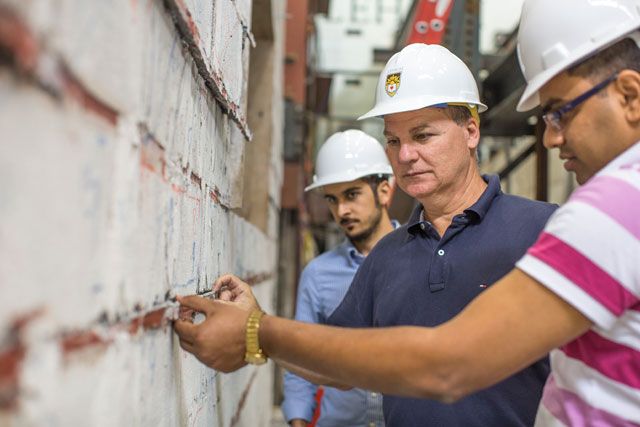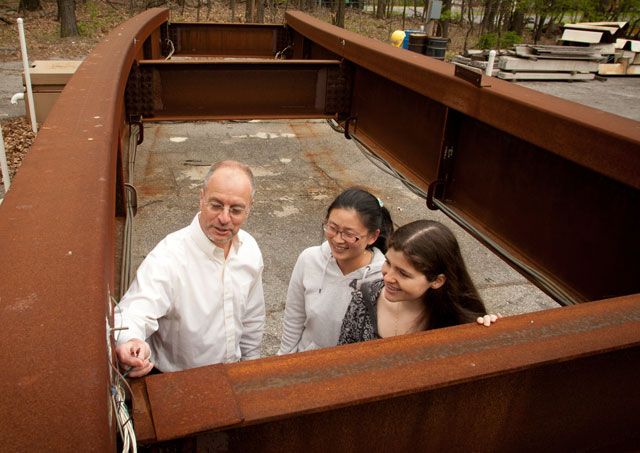Professors James Ricles and Richard Sause of civil and environmental engineering have recently been awarded a highly competitive $5-million, 5-year grant from the NSF to participate in a national initiative aimed at improving the resiliency and sustainability of the civil infrastructure to better withstand the effects of earthquakes and other natural hazards. The NSF grant, entitled Natural Hazards Engineering Research Infrastructure: Experimental Facility with Large-Scale, Multi-directional, Hybrid Simulation Testing Capabilities, is being made through NSF's $40 million Natural Hazards Engineering Research Infrastructure (NHERI) program.
Lehigh was selected because its ATLSS facilities will enable researchers to conduct real-time, large-scale and multidirectional structural experiments that mimic the demands on structures from natural disasters. Ricles and Sause serve as deputy director and director of ATLSS, respectively. Overall, NHERI will support a network of state-of-the-art shared-use research facilities at seven U.S. universities that will evaluate the performance of engineering designs and materials during earthquakes, hurricanes and other storms, tsunamis, landslides and other disasters.
In order to successfully perform real-time hybrid simulations of complex systems, high fidelity algorithms are required to control in real-time the equipment in the laboratory while simultaneously performing high-speed computations associated with the numerical models. Part of this project will help continue to advance the algorithms that Lehigh has developed and implemented over the past decade to conduct hybrid simulations. These algorithms will enable future researchers to face challenges in improving the resiliency and sustainability of civil infrastructure against different natural hazards.
In addition to the field of structural engineering, researchers in other fields of engineering and science across campus will benefit from the NHERI program, including students and researchers engaged in geotechnical engineering, hydraulic engineering, lifecycle engineering, mechanical engineering, materials science and computer science, among others.


